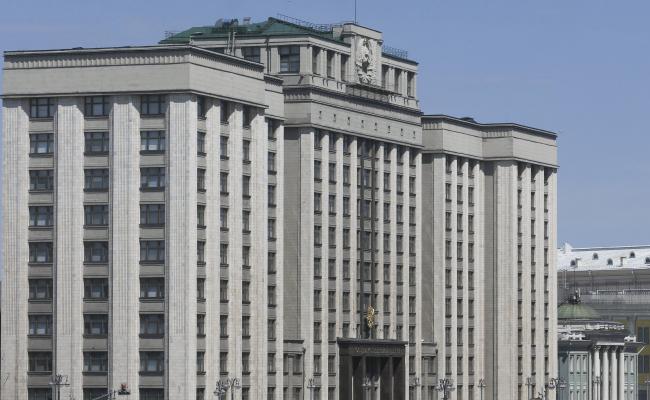Upcoming Duma Elections: "No Reason to Expect Major Changes in Russia's Arctic policy"

South Korean President Moon Jae-in speaking in the Russian State Duma in 2018. (Photo: duma.gov.ru)
"The outcome of the election is more or less given. No reason to expect major changes in Russia's Arctic policy", says researcher Arild Moe.
Four Arctic nations have parliamentary elections in September this year. The people of Norway, Iceland, Canada, and Russia will have their say in who is to govern the Arctic for the next four years.
Russia holds elections for the Russian Parlament, the State Duma between the 17. and the 19. of September. The State Duma consists of 450 representatives, out of which half are elected in majority elections in single-member constituencies.
Russia is divided into 225 constituencies, each of which elects a representative. Representatives can be supported by parties or stand for election individually.
United Russia is the ruling party and has majority control of the Duma with 343 representatives. In 2016 the party received 54,2 percent of the votes.
"The outcome of the election is more or less given. No reason to expect major changes in Russia's Arctic policy. The Arctic is also not a topic the political opposition is concerned with. But all types of elections in Russia are often accompanied by changes in government. Person changes can mean something, but it will be completely marginal", says researcher Arild Moe at the Fridtjof Nansen Institute, and adds:
"The chairmanship of the Arctic Council does not matter for the outcome of the election. However, the chairmanship matters for Russia's policy in the Arctic. Russia is mobilizing in several areas and wants to present itself as a lead nation focused on co-operation".
Alongside the State Duma elections, there will be direct elections of the heads of nine Russian regions, and in another three regions, the top executive officials will be elected by the local legislatures and the elections of 39 regional parliaments.
Person changes can mean something, but it will be completely marginal
The European Parliament's foreign affairs committee suggested earlier this year that the EU should be prepared to refuse to recognize the State Duma elections if Brussels finds that elections were held in violation of international norms.
“The EU authorities are free to do whatever they want, even to find violations before the date of the elections and not to recognize the results of the event which has not taken place yet. That is not surprise for us,” said Deputy Chairman of the State Duma Petr Tolstoy.
“That would be almost the same if we decided not to recognize the European Parliament, for example, for the decisions not to recognize Catalonia or the Russian Crimea. But such situation is like an endless confrontational swamp, which could irrevocably pull deeper, so there would be no dialogue at all. That would be great if the EU finally to set aside endless confrontation and attempts to put pressure on Russia,” the parliamentarian said.



